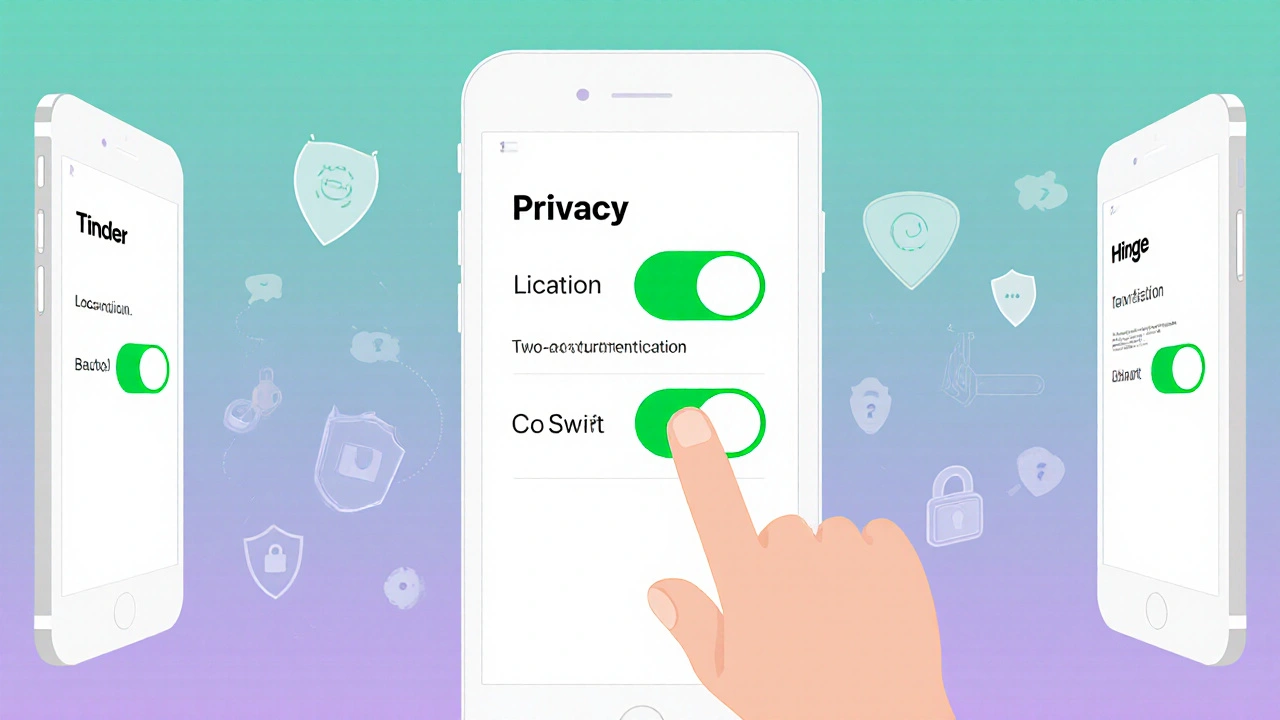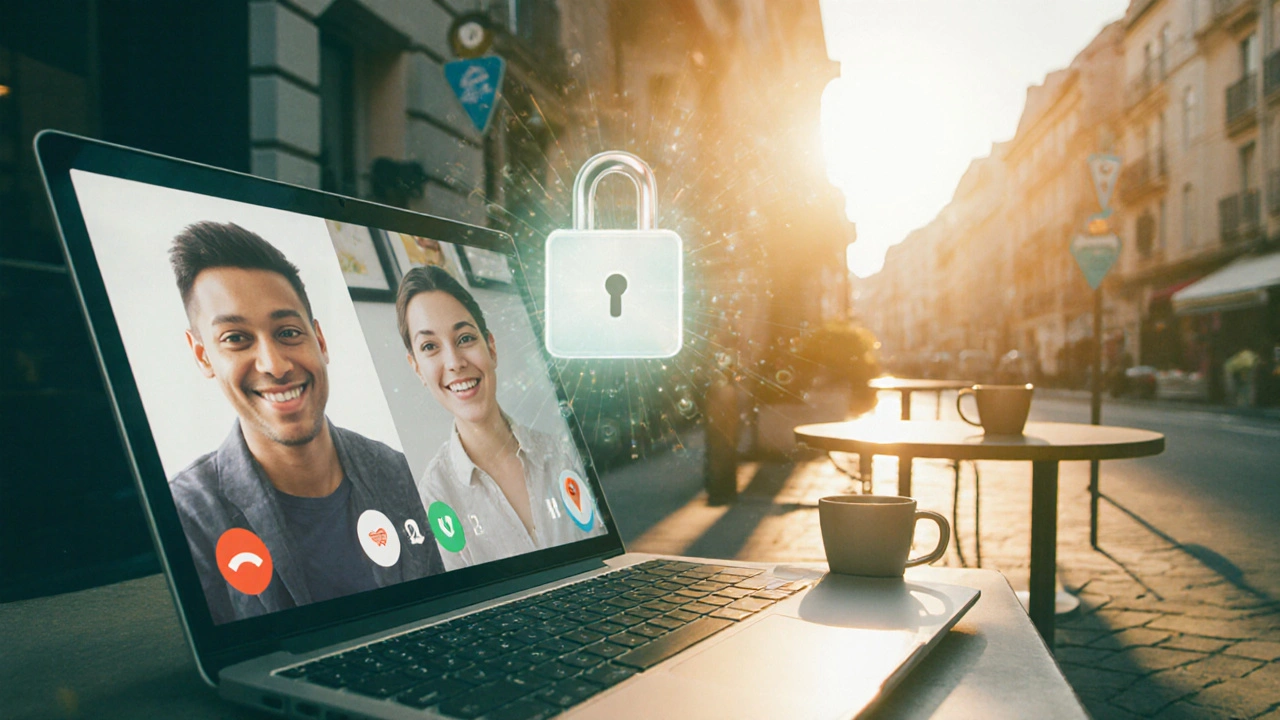Online Dating Safety Checklist
Check all items you've verified. Complete all for maximum protection.
Review your safety status:
Ever matched with someone who seemed too perfect and wondered if it was a setup? In 2024, a recent study found that 1 in 5 online daters reported a scam, and the numbers keep climbing. That’s why online dating safety isn’t a nice‑to‑have-it’s a must‑have.
Online Dating Safety is a collection of habits, tools, and quick checks that keep you from becoming a victim. Below you’ll learn exactly how to stay safe without turning every conversation into a security briefing.
Know the Red Flags Before You Swipe
First‑line defense starts with spotting the warning signs. Here are the most common cues:
- Catfishing - a profile that uses stolen photos or vague details.
- Requests for money, even if the story sounds heartbreaking.
- Insistence on moving the chat to personal email or messaging apps within minutes.
- Overly flattering language that feels scripted rather than genuine.
- Reluctance to share a phone number or video call.
If any of these pop up, pause and verify. A quick reverse‑image search can save you from a fake profile.
Secure Your Profile: Privacy Settings Matter
Most dating apps let you control who sees your photos, age range, and location. Here’s a cheat‑sheet for three of the biggest platforms:
| Feature | Tinder | Bumble | Hinge |
|---|---|---|---|
| Hide profile from strangers | Yes (Premium) | Yes (free) | Yes (free) |
| Control who sees your distance | Custom radius | Exact miles | Exact miles |
| Block unwanted contacts | Instant block | Instant block | Instant block |
| Two‑factor authentication | SMS or Auth app | SMS or Auth app | SMS only |
Turn on every privacy toggle you can. It may feel restrictive, but you’ll thank yourself later.
Use Two‑Factor Authentication (2FA) Everywhere
Adding a second layer of login protection drastically reduces account hijacking. Most apps support 2FA via SMS or an authenticator app like Google Authenticator. Treat it like a lock on your front door-one key isn’t enough.
Never Share Personal Financial Info
Scammers love to blur the line between romance and money. Here’s a quick rule of thumb: if a match asks for cash, gift cards, or a crypto address, walk away. According to the Federal Trade Commission (FTC), dating‑related fraud losses topped $300 million in 2023.

Verify with a Video Call Before Meeting In Person
A short video chat can confirm that the person behind the profile is real. It also gives you a sense of their communication style. Keep the call short-just enough to see their face and hear their voice. If they’re reluctant, that’s a major red flag.
Do a Background Check (Legally)
Many states allow you to run a limited background check using public records for a small fee. Services like BeenVerified or TruthFinder can reveal past criminal records, known aliases, or a history of fraud. Only use reputable, GDPR‑compliant services.
Protect Your Location Data
Never share your exact address until you’re 100 % comfortable. Use a public place for the first meeting and consider sharing only the venue name, not your home address. Some apps let you hide location entirely until you decide to reveal it.
Beware of Payment Platforms and Crypto Requests
Scammers increasingly ask for payments via Venmo, Zelle, or even cryptocurrencies because they’re hard to trace. A quick tip: if the request comes with urgency-"I need this money now because..."-it’s almost certainly a scam.

Maintain Digital Hygiene After the Date
Even after a good date, keep your online footprint clean:
- Remove any personal details you shared from the chat history.
- Update your password if the conversation revealed any hints about your accounts.
- Check your social media privacy settings-make sure strangers can’t see your personal posts.
These steps close the loop on potential data leaks.
Quick Safety Checklist
Print this out or save it on your phone. When you’re about to start a conversation, run through the list:
- Profile picture verified via reverse‑image search?
- Privacy settings maximized on the app?
- 2FA enabled?
- No money requests?
- Video call done before in‑person meet?
- Location shared only after trust is built?
- Background check completed (if needed)?
If you answer "yes" to all, you’re in great shape.
What to Do If You Suspect a Scam
Act fast:
- Block the user on the app and any linked social media.
- Report the profile to the dating platform-most have a "Report a Problem" button.
- If money was sent, contact your bank or payment provider immediately.
- File a complaint with the FTC or your local consumer protection agency.
Document everything-screenshots, transaction IDs, and timestamps-so authorities have a clear trail.
Frequently Asked Questions
How can I tell if a profile picture is fake?
Paste the image into Google Images or a reverse‑image search tool like TinEye. If the picture appears on other sites with different names, it’s likely stolen.
Is it safe to share my phone number early on?
Best practice is to wait until you’ve verified the person via video chat and feel comfortable. Sharing too soon can expose you to spam or harassment.
What should I do if someone asks for a gift card?
Never comply. Gift‑card scams are common because the code can be redeemed instantly. Report the request and block the user.
Can I use a pseudonym on dating apps?
Some apps allow you to hide your full name, but most require a real first name. Using a nickname can protect privacy, but be honest about basics to avoid mistrust later.
How often should I change my passwords for dating apps?
Aim for every 3-6 months, especially if you suspect a breach. Pair each change with 2FA for maximum protection.
Staying safe while online dating isn’t about being paranoid; it’s about being smart. Follow these steps, trust your instincts, and enjoy the adventure of meeting new people.


Written by Michele Bradford
View all posts by: Michele Bradford